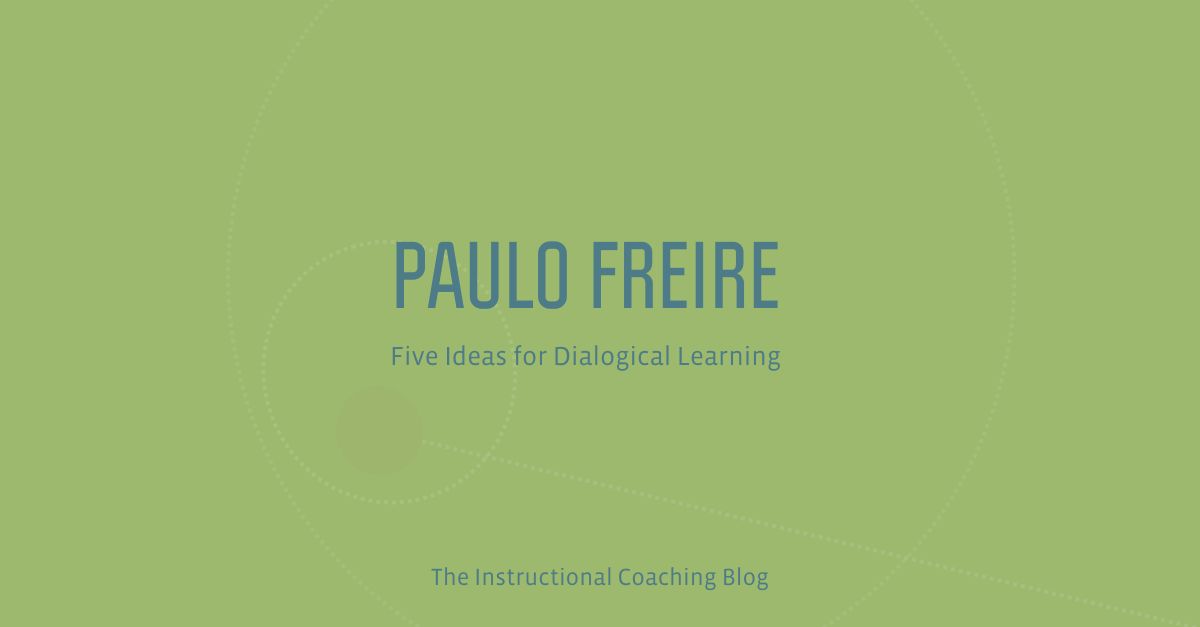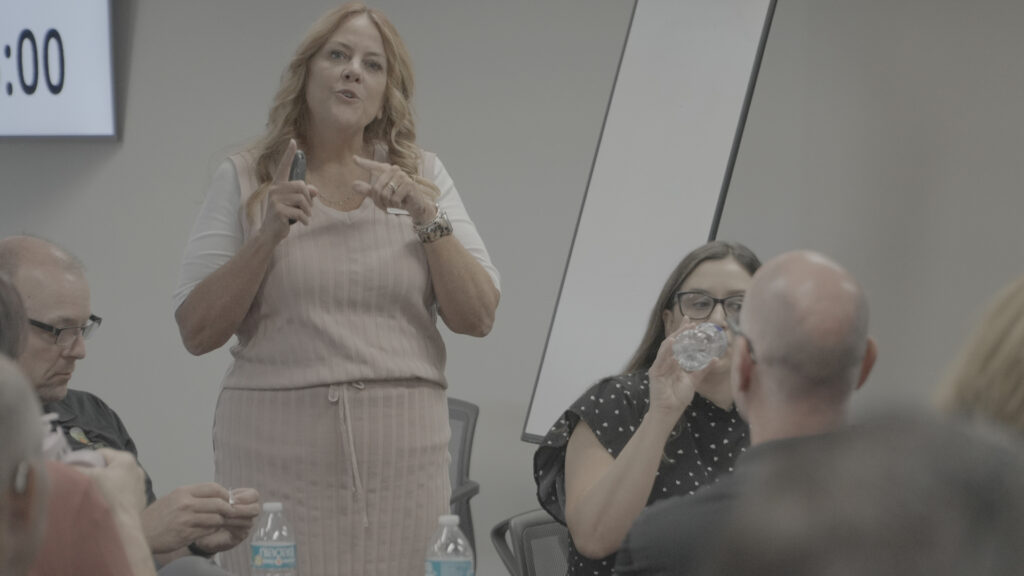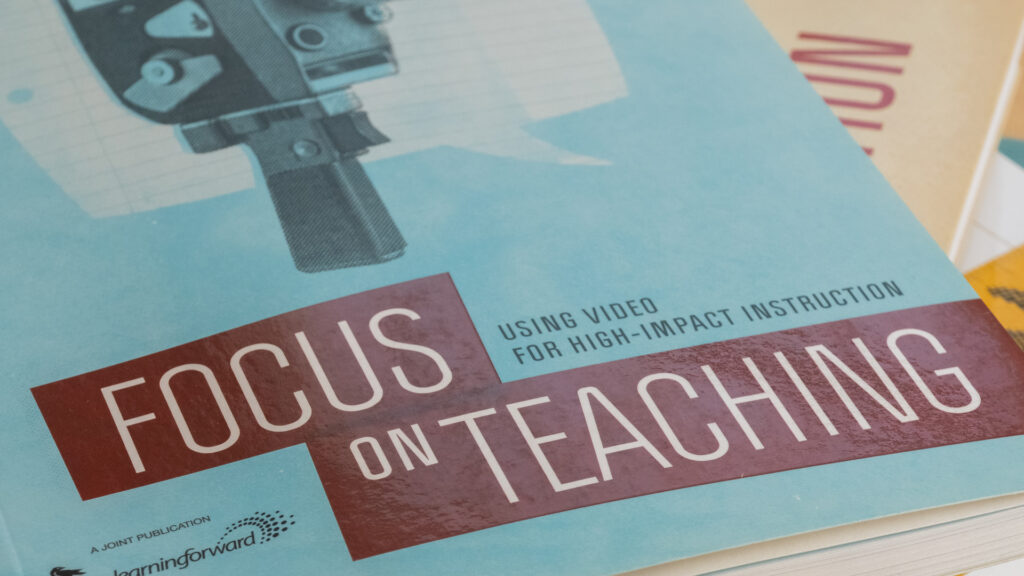All of ICG’s work is based in partnership and dialogue. Our research supports our belief that recognizing the learner as an equal is essential for true learning to take place, and much of our approach to coaching is indebted to the innovative ideas on dialogical teaching and communication that Paulo Freire introduced in his masterpiece, The Pedagogy of the Oppressed (1968).
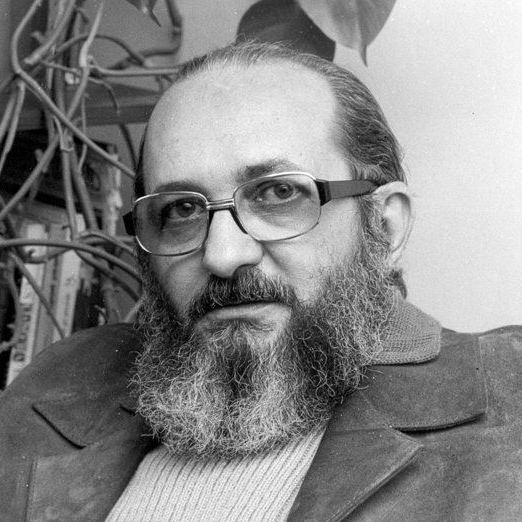
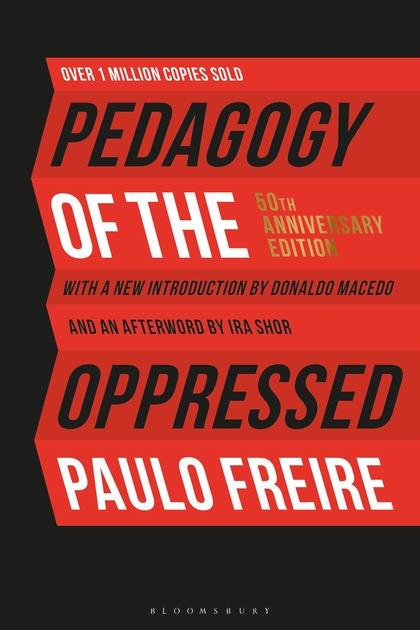
In The Pedagogy of the Oppressed, Freire describes five ideas that he believes are important for dialogue. We believe that these ideas are not only fundamental for dialogue between teacher and student, but for learning in its broadest sense.
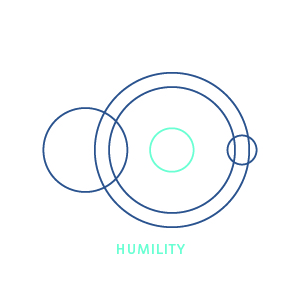
Humility
“[People] who lack humility (or have lost it) cannot come to the people, cannot be their partners in naming the world … Dialogue cannot exist without humility.” – Paulo Freire
Teaching with humility means knowing that teaching begins with students, not teachers. Teachers who approach students with a genuine desire to learn from and understand them facilitates much a more effective relationship than those who adopt a directive approach centered on their own knowledge, education, and experience. A humble approach that acknowledges students’ powerful role is a great way to ensure improved student learning as well as improved instruction.

Hope
“Dialogue cannot be carried on in a climate of hopelessness. If the dialoguers expect nothing to come of their efforts, their encounters will be empty, sterile, bureaucratic and tedious.” – Paulo Freire
Though it can sometimes feel like a cliché or mindless platitude, believing in students is a core part of instruction and learning. The combination of high expectations and effective instruction is a proven way to both express hope to students and to ensure they can see the results of their hard work, proving that a teacher’s words of encouragement and hope are not empty. If communicated effectively and earnestly and backed up by proof of their accomplishments, belief in students’ capacity to learn can help them to believe in themselves.

Faith
“Faith in [people] is an a priori requirement for dialogue; the ‘dialogical [person]’ believes in other [people] even before [meeting] them face to face.” – Paulo Freire
When teachers have faith in students, they see them as autonomous individuals deserving of respect. This faith in students paves the way for a deeper trust to be established, and trust is critical in any relationship where real, meaningful learning is a goal. More importantly, having faith in students can instill a true and profound sense of self-worth and help them to value themselves in all future relationships.

Love
“If I do not love the world–If I do not love life–If I do not love [people]–I cannot enter into dialogue.” – Paulo Freire
Acknowledging the importance of love can be difficult because it requires us to be vulnerable, but love is an essential element to any meaningful relationship, especially for relationships seeking growth and learning. Communication happens verbally and non-verbally, and one of the most effective ways to express love of any kind is through our actions. Observing our own actions through video is a way for us to get a clear picture of reality, identify what is working and what is not, and work to be more loving. Simple actions we take that encourage connection–praise, smiles, words of encouragement, signs of respect, genuine interest, and concern-can encourage more meaningful dialogue and increase the chances for learning to take place.
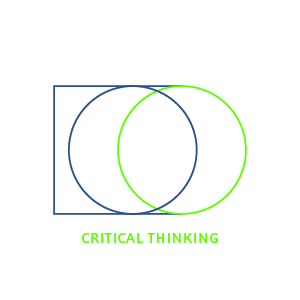
Critical Thinking
“Only dialogue … is … capable of generating critical thinking.” – Paulo Freire
One way to keep our focus on student learning is to ask, “Are we letting the students do the thinking?” Freire’s comment cautions us by suggesting that students will not think unless we approach them with an openness and a desire to learn from them. There are many strategies to foster a thinking environment for students, including:
- Connecting learning to student interests
- Asking good questions
- Using learning structures and teaching strategies that prompt student thinking
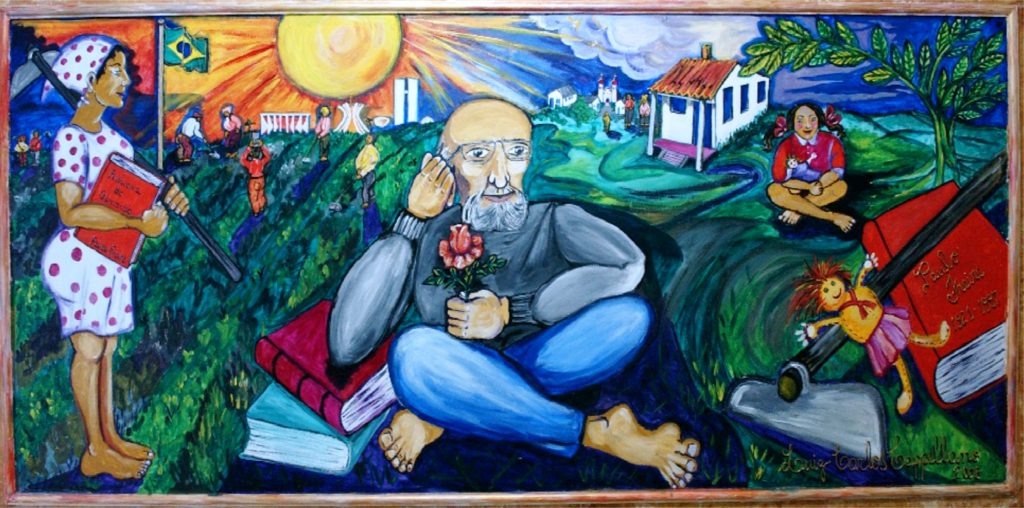
Just as these ideas are central to dialogue between teacher and student, they are also crucial for dialogue between instructional coaches and teachers, administrators and teachers, administrators and coaches, or any other dialogue meant to pursue learning. When educators employ these concepts, deeper connections are forged and meaningful learning can occur. By exploring these ideas and introducing the importance of a dialogical approach in The Pedagogy of the Oppressed, Paulo Freire helped usher in a new way of thinking about education and inspired us to find more effective ways to communicate and improve student learning.
What are some ways that you have incorporated these concepts in your teaching, coaching, and/or learning? Leave a comment below!
